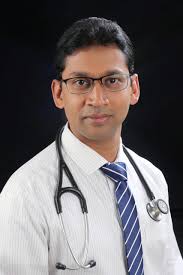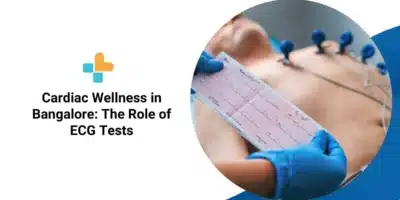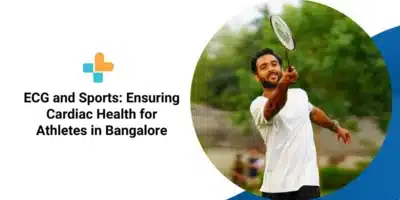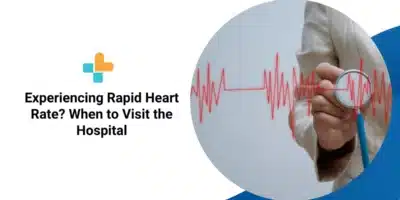Cardiologists are the doctors who specialize in diagnosing and treating heart disorders and some cardiovascular diseases which comprise the heart, blood vessels, arteries, and many more.
When should you visit a Cardiologist?
According to the report of The Lancet Global health report deaths due to cardiovascular diseases in India rose to 28% in 2016 compared with 15% in 1990. The report doesn’t show any data for the year 2020. The report manifests the need to understand the right time, medications and specialists to treat heart ailments.
There are many conditions and symptoms where you may need to consult a cardiologist. Here are the five significant signs which indicate the need to visit a cardiologist:
- You are experiencing chest pain
Often, people consider chest pain as a symptom of a heart attack. However, there can be many other causes of heart pain like cardiovascular diseases, respiratory diseases, anxiety disorders, or problems with digestion. Irrespective of the reason for chest pain, you should immediately rush towards the hospital for treatment.
Moreover, the chest pain that occurs with particular activities is pretty concerning, as it can be a sign that blood is not properly getting to the heart. A cardiologist can help determine the cause with the appropriate diagnosis and treatment plan.
- You have high cholesterol and blood pressure.
High cholesterol can be a result of the consumption of unhealthy food and generation from the liver itself. A cholesterol level of 200 mg/dL or higher can result in the risk of high cholesterol and, subsequently, heart disorders. High cholesterol leads to contributing plaque in the arteries, which can restrict the blood flow to the heart.
- You have a family history of heart disorders.
Digging in your family history could be a great help to know if you are prone to heart disease or not. Heart disease is mostly an active genetic component. If you see a pattern of heart ailments in your family tree, you should consult a cardiologist who can specifically help to know if you are prone to it.
- Shortness of breath and wheezing
Shortness of breath, also known as Dyspnea is majorly due to heart and lung conditions. Hyperventilation can also be a symptom of a possible heart disorder and suggesting the need to visit a cardiologist. Even if you are an average active person and after working out, you may breathe rapidly, but you should never face Dyspnea. It reflects the possible blockage of arteries or some other heart disorder.
Wheezing is also a significant symptom of heart disorders. It is the whistling sound a patient hears during breathing. Shortness of breath and wheezing can be associated with symptoms of anxiousness, bloody sputum, chest pain, chest tightness, cough and many more. If it’s the case, you must immediately visit a cardiologist to prevent any severe damage.
- Related Conditions
If you possess other health diseases like high cholesterol, diabetes, you could be prone to heart disorders and should consult a cardiologist to get proper medication and diminish the risks of heart attacks and other disorders.If you have disease in leg arteries or blood vessels of the brain you are much like to possess Coronary Artery Disease [CAD]. Sometimes Kidney disease can also lead to CAD or increased blood pressure.
If you are experiencing any of the symptoms mentioned above, then you should immediately consult a cardiologist.
Types of cardiology you should be informed of:
There are mainly two types:
- Invasive Cardiology
- Non-Invasive Cardiology
Invasive Cardiology
Invasive cardiology is the procedure to treat heart disorders by performing minor surgeries to treat the patient. It involves processes like perforation, catheterization, incision, etc. Invasive cardiology comprises further of two types:
- Angioplasty- A procedure used to open the clogged blood arteries that pump blood to your heart. The process uses inserting a thin plastic tube with a small balloon at the tip (a.k.a. catheter) in the arteries through the arm or groin. The balloon is then inflated at the clogged area of the artery.
- Stenting- The same procedure is used to open a clogged vein. However, In stenting, the balloon is replaced with a thin metal mesh called Stent. It is permanently inserted to hold the clogged artery open and preventing it from re-closing, that could be the case in angioplasty. Stenting has some risks like allergies, breathing problems, blood clots and rarely even a heart attack.
Interventional cardiology is a subset of invasive cardiology as it is a minimally invasive procedure which again uses a catheter. The catheter is inserted into an artery and guided through X-ray imaging to the blocked artery post which, a balloon / stent is inserted at the blockage location.
Non-Invasive Cardiology
The procedure used in diagnosing and treating the heart and cardiovascular disorders without any surgery is known to be Non-Invasive Cardiology. The method is much safer as it doesn’t involve any further complications. The procedure comprises many techniques to diagnose like:
- Nuclear cardiology
- Echo Cardiography
- Cardiac electrophysiology
- CT Scans and many more!
Non-Invasive Cardiology is proven to be successful in some cases of chest pains, valve disease and other heart ailments as well.
Which Cardiologist is right for your specific heart problem?
Often, people misunderstand their heart disease as a minor or a major one. Proper treatment is necessary for any heart disorders. People get confused when to consult a cardiologist and which one can provide them with the best health care. This is where we step in. Ayu health is the most trusted network of hospitals where people can consult, diagnose and get treated all under one roof.
How can we help?
Many patients suffer from these symptoms but fail to take essential measures to prevent severe effects. Ayu health is a trusted network of hospitals in India, providing one-stop treatment for patients to get optimum healthcare.
We have a team of certified doctors with more than 20 procedures and 6 specializations that comprise of:
- General Surgery
- Urology
- Orthopaedics
- Gynaecology
- Cardiology
- Proctology
Ayu Health have treated thousands of patients with heart disorders and so we can do it for you. We provide cost-effective health care services, 24*7 hours a week!
Ayu Health have highly qualified cardiologists and high-quality infrastructure to support all procedures. To book an appointment with a cardiologist, you can call at +91 – 6366 100 800 or visit our website to learn more.
Our Hospital Locations
Cardiology Surgery Hospitals in Chandigarh | Cardiology Surgery Hospitals in Bangalore | Cardiology Surgery Hospitals in Jaipur | Cardiology Surgery Hospitals in NCR | Cardiology Surgery Hospitals in Hyderabad
Our Doctors
Cardiology Surgery Doctors in Chandigarh | Cardiology Surgery Doctors in Bangalore | Cardiology Surgery Doctors in Jaipur | Cardiology Surgery Doctors in NCR | Cardiology Surgery Doctors in Hyderabad
About the Author

Dr. Magesh Balakrishnan
Dr. Magesh Balakrishnan is a renowned cardiologist currently practicing at Ayu Health, Bangalore.
He has 16 years of experience in this field. He has excellent skills in performing all cardiac diagnostic procedures/ tests. He has performed emergency and elective angiographies and angioplasties, device implantation (Pacemaker, AICD & CRT)




